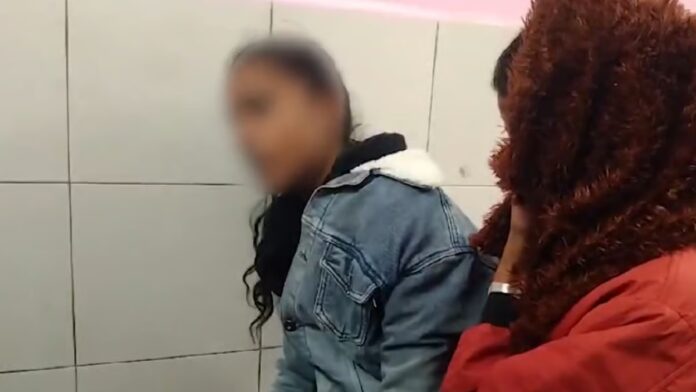Minor Girl Alleges Poisoning By Family is an incident that has shocked the community of Unnao, Uttar Pradesh, and sparked conversations about familial conflicts and social acceptance. The minor, who had expressed her wish to marry her sister-in-law, accused her family of poisoning her in retaliation. This incident sheds light on the societal struggles faced by individuals in unconventional relationships and the repercussions of familial disapproval.
The Incident And Allegations
The minor girl reportedly fell in love with a married woman from her village, who she referred to as her sister-in-law. The two women allegedly developed a romantic relationship, leading to the minor asking her family for permission to marry her. This request reportedly caused significant turmoil within the family, culminating in an altercation.
According to the minor’s claims, her family, along with her sister-in-law’s relatives, assaulted her and forcibly poisoned her as punishment for her romantic inclinations. Following this, the two women fled their homes in an attempt to escape the hostile environment. However, they were later handed back to their respective families by the police, which has further complicated the situation.
Family Disputes And Social Stigma
This case highlights the complex dynamics of family disputes that arise from unconventional relationships. In conservative communities, same-sex relationships are often met with resistance, rooted in societal norms and expectations. The minor’s request to marry her sister-in-law not only challenged traditional family structures but also brought to light the stigma surrounding such relationships.
Family conflicts in such situations often escalate due to a lack of understanding and acceptance. The minor’s allegations of assault and poisoning underscore the extreme measures some families resort to in order to maintain their perception of social propriety.
Legal And Ethical Implications
The legal framework in India is still evolving to address issues surrounding same-sex relationships and the rights of LGBTQ+ individuals. While the decriminalization of homosexuality in 2018 was a landmark step, societal acceptance remains a significant hurdle. Cases like this one expose the gaps between legal progress and social realities.
From a legal standpoint, the allegations of poisoning and assault are serious and warrant a thorough investigation. The police’s decision to hand the two women back to their families has raised questions about the protection of vulnerable individuals in such cases. Activists have called for greater sensitivity and a focus on the safety and well-being of those involved.
Emotional And Psychological Impact
For the minor and her partner, the emotional toll of this incident is likely immense. Being rejected and harmed by one’s own family can leave deep psychological scars, affecting their sense of trust and self-worth. Mental health experts emphasize the importance of providing counseling and support to individuals in such situations to help them cope with trauma and rebuild their lives.
The lack of safe spaces for LGBTQ+ individuals in rural areas further exacerbates their struggles. Without access to resources or support networks, many are left to face societal and familial rejection on their own.
The Role Of Law Enforcement
Law enforcement agencies play a crucial role in handling sensitive cases like this one. Ensuring the safety of the individuals involved should be the top priority, especially when they allege harm from their own families. Critics have pointed out that handing the two women back to their families may have put them at further risk.
There is a need for police training to address LGBTQ+ issues with greater empathy and understanding. Establishing protocols for handling such cases can help prevent further harm and ensure justice for those affected.
Societal Attitudes Toward Same-Sex Relationships
The minor’s case is a stark reminder of the challenges faced by same-sex couples in India, particularly in conservative and rural settings. Despite legal advancements, societal attitudes often lag behind, creating significant barriers for LGBTQ+ individuals seeking acceptance and equality.
Educational initiatives and awareness campaigns can play a pivotal role in changing mindsets and fostering a more inclusive society. Promoting dialogue and understanding about diverse relationships can help reduce the stigma and discrimination faced by LGBTQ+ individuals.
Community Reactions And Support
The incident has sparked mixed reactions within the community. While some have expressed sympathy for the minor and her partner, others have criticized their relationship, citing traditional values and norms. This divide highlights the ongoing struggle between progressive and conservative forces in Indian society.
Activists and support groups have stepped in to advocate for the rights and safety of the two women. Their efforts underscore the importance of community support in addressing cases of discrimination and violence against LGBTQ+ individuals.
Broader Implications
This case is not just about one minor girl and her partner—it reflects the broader challenges faced by LGBTQ+ individuals in India. It highlights the need for systemic changes to ensure their safety, dignity, and rights. By addressing the root causes of discrimination and promoting inclusivity, society can move toward a future where everyone is free to live and love without fear.

